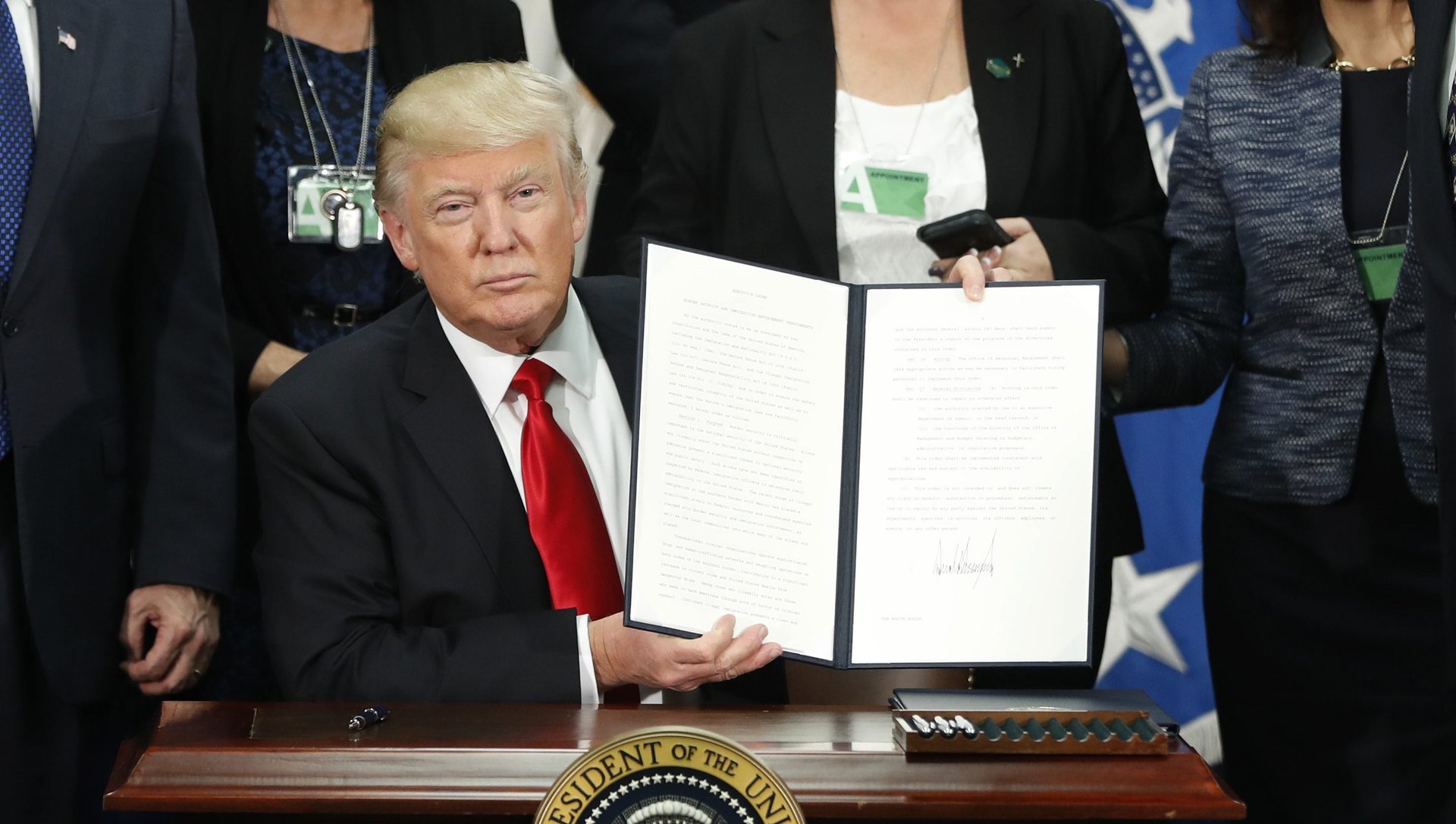How many people will Trump’s travel ban affect? The US government wants you to pay for that information
US president Donald Trump has imposed a temporary ban on travel to the United States from seven majority-Muslim nations and strengthened visa requirements for nationals from even the country’s closest allies, through an executive order.


US president Donald Trump has imposed a temporary ban on travel to the United States from seven majority-Muslim nations and strengthened visa requirements for nationals from even the country’s closest allies, through an executive order.
The 90-day ban, attributed to national security, applies to most citizens and dual-citizens of Iran, Iraq, Sudan, Syria, Libya, Somalia, and Yemen, as well as non-Americans who have traveled to those countries since March 2011. The order also suspends accepting refugees for four months. Syrian refugees are banned indefinitely.
Gauging the effect of Trump’s crackdown should be easy: The government collects data on how many people enter the US, from which countries, under which visas, and so on. But it will only release that information to people and companies willing to pay a high price—$173,775 for the most comprehensive versions of its databases.
That’s why I sued the US last year, seeking free access to the data under the Freedom of Information Act (FOIA), which guarantees access to most government records in the public interest. It’s hard to imagine a greater public interest than this.
My lawsuit concerns two databases maintained by the International Trade Administration (ITA), which is under the Department of Commerce. One contains anonymous immigrations records; the other, statistics about international air travelers. Together, they would tell us a lot about who is entering the country, where, and for what purpose.
How often were people entering the US from the countries implicated by Trump’s ban? What visas did they receive? Which US cities will be most affected? Will it impact foreign or domestic airlines more? What kinds of effects could these measures have on the global economy? The government’s data would help us answer all these questions and more.
One-ninth of all jobs in the US are dependent on tourism, according to the US Travel Association. Wilbur Ross, Trump’s nominee to be commerce secretary, cited that statistic during his confirmation hearing. Senator Roy Blunt, questioning Ross, called tourism the “low-hanging” fruit of the American economy.
The public can access overview statistics from the ITA for free, but none of those specifically cover the countries banned in Trump’s order. Detailed data from 2015 would cost $690. Other organizations, like the United Nations, make available similar information, but only the US government has the most detailed view of who’s crossing its borders.
Contacted today (Jan. 25) about accessing its vast trove data, the ITA office that collects these statistics told Quartz: “Our forecast analysis is for only top countries and regions. We do sell a subscription to arrivals data for all countries.”
My lawsuit was filed in May 2016, during the Obama administration. The government argues, in somewhat circular logic, that these data aren’t covered by FOIA because it charges for them. The suit is currently in the hands of a federal district court judge in Washington, DC, who can either call for a hearing, request more information, or decide the case.
Reporting was contributed by Leslie Josephs.
This story has been updated to reflect the signing and release of the official order.
Correction: A previous version of this story incorrectly asserted that the order suspended the US Visa Waiver Program, a benefit to travelers from 38 nations including much of Europe. In fact, the edict suspended a different program, the Visa Interview Waiver Program.